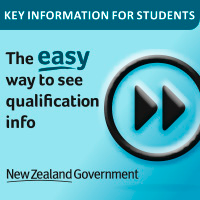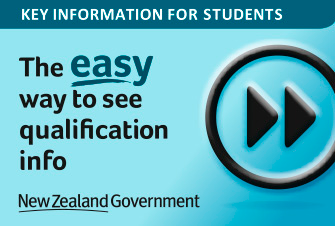Programme overview
The BSc allows you to incorporate different areas of interest and expertise. The programme introduces advanced technologies and provides a gateway to independent research. A conjoint with Fine Arts allows you to combine your scientific specialisation with a choice of media and practices, including ceramics, photography, painting, installation, performance art, print, moving image, digital media, and sound art.
Browse contemporary art projects by our Fine Arts students.
Throughout your undergraduate degree you’ll be taught by knowledgeable scientists and respected Fine Arts academics, many of whom are major contributors in their field.
This conjoint will enhance your scientific research, creativity and critical thinking skills to bring out the best in you and expand your career options.
Programme structure
The BFA/BSc usually takes four years to complete.
You will need to complete 540 points, consisting of:
- 255 points from BFA courses
- 255 points from BSc courses
- 15 points Waipapa Taumata Rau core course
- 15 points from General Education
In your Fine Arts component you will explore foundation technologies, critical studies and studio practice. You will also refine your artistic practice by choosing from a wide range of elective courses that suit your developing interests. In your final year, you will complete a capstone Fine Arts project and associated research essay.
For your Science component, enrolment will depend on your majors. You can choose up to two subjects as your major(s) for the BSc.* Each Science major usually has a range of core and elective courses. In your final year, you will undertake a capstone project where you integrate and apply your learning to a real-world problem in your chosen major or specialisation.
You will probably enrol in nine 15-point courses (135 points) each year if you want to complete in four years. You need to maintain a Grade Point Average of 3.5 each year to continue with your conjoint.
*Anthropological Science, Biomedical Science, Biotechnology, Food Science and Nutrition, Information Systems and Medicinal Chemistry are not available as majors within a conjoint.
Most students need to take one General Education course.
Students should also be aware of the University’s Academic English Language Requirement.
Subjects available in this programme
- Anthropological Science
- Biol Sc - Biochem & Cell Bio
- Biol Sc - Biotechnology
- Biol Sc - Ecology
- Biol Sc - Evolution
- Biol Sc - Genetics
- Biol Sc - Marine Biology
- Biol Sc - Microbiology
- Biol Sc - Plant Biology
- Biol Sc - Zoology
- Biological Sciences
- Chemistry
- Computer Science
- Earth Sciences
- Environmental Science
- Exerc Sc - Appl Exe & Sport Sc
- Exercise Sciences
- Fine Arts
- Geographic Information Science
- Geography
- Information & Technology Mgmt
- Logic and Computation
- Marine Science
- Mathematics
- Mathematics - Applied
- Mathematics - Pure
- Pharmacology
- Physics
- Physics - Medical & Imaging
- Physics - Photonics
- Physiology
- Psych - Cognitive Neuroscience
- Psychology
- Statistics
- Stats - Applied Statistics
- Stats-Statistics & Probability
2025 entry requirements
My highest qualification is from:
Secondary school qualifications
If you're joining us from secondary school, here's what you need to enter the programme.
You are guaranteed entry to this programme if you meet these requirements.
- First, you must meet the University Entrance (UE) standard.
- You must also meet the rank score for this programme. Not sure about your rank score? Use our rank score calculator.
- You may need to have studied certain subjects or achieved credits in particular subjects.
- Some programmes have additional requirements, such as an interview, portfolio or references.
Minimum rank score, subject and other requirements
These are the minimum grades required for entry to this programme. These are the likely grades required, but they do not guarantee entry. Applicants may require higher grades to gain entry to this programme.
-
QualificationNCEA National Certificate of Educational AchievementScore required210
-
QualificationCIE Cambridge International ExaminationsScore required230
-
QualificationIB International BaccalaureateScore required28
Read more about entry requirements for New Zealand secondary school applicants.
Tertiary qualifications
If you've studied at a tertiary institution, here's what you need to enter the programme.
You can transfer from another tertiary institution, or another University of Auckland qualification, if you meet these requirements.
Minimum grade requirements
These are the likely grades required, but they do not guarantee entry. Applicants may require higher grades to gain entry to this programme.
-
Grade requiredGPA Grade Point Average 3.9
-
Grade requiredGPE Grade Point Equivalent 3.9
Other pathways to study
You could be eligible for another programme, or check out these alternative pathways:
- See if you meet the criteria for the Undergraduate Targeted Admission Scheme (UTAS).
- Bridge your educational gap with a preparation and foundation programme.
- If you are under 20, have no formal University Entrance (UE) qualification, and are a New Zealand or Australian citizen or permanent resident you can apply for discretionary entrance.
- If you can demonstrate outstanding academic achievement and maturity, we offer admission to applicants under 16.
My highest qualification is from this country or region:
Secondary school qualifications
If you're joining us from secondary school, here's what you need to enter the programme.
You need to have one of the following:
- International Baccalaureate Diploma with a minimum total score of 24.
- General Certificate of Education (GCE) Advanced Level. You must have completed a minimum of three A-Level subjects.
- Cambridge International Examinations (CIE). You must have completed a minimum of three A-level subjects.
GCE ‘A’ Level requirements apply to ‘A’ Level qualifications examined by bodies such as AQA, OCR, Edexcel, WJEC, CCEA and Pearson Education Limited taken outside of New Zealand.
Guaranteed grade, subject and other requirements
These are the grades required for guaranteed entry to this programme. If your grades are slightly lower, we encourage you to still apply. We will consider your application if places are available.
-
QualificationCIE Cambridge International ExaminationsScore requiredBBCQualificationIELTS Academic International English Language Testing SystemScore required6.0
No bands less than 5.5
-
QualificationIB International Baccalaureate DiplomaScore required28QualificationIELTS Academic International English Language Testing SystemScore required6.0
No bands less than 5.5
-
QualificationGCE A Level General Certificate of Education (GCE) Advanced LevelScore requiredBBCQualificationIELTS Academic International English Language Testing SystemScore required6.0
No bands less than 5.5
Tertiary qualifications
If you've studied at a tertiary institution, here's what you need to enter the programme.
You can transfer from another tertiary institution if you meet these requirements.
You need to have the following:
One year successful bachelor-degree level study at a recognised university (or similar institution) overseas.
Guaranteed grade requirements
These are the grades required for guaranteed entry to this programme. If your grades are slightly lower, we encourage you to still apply. We will consider your application if places are available.
-
Grade requiredGPE Grade Point Equivalent 3.9
-
QualificationIELTS Academic International English Language Testing SystemScore required6.0
No bands less than 5.5
Other pathways to study
You could be eligible for another programme, or check out these alternative pathways:
- Bridge your educational gap with a preparation and foundation programme.
- If you have an offer of place from us that is conditional on meeting English language requirements, you may be considered for English Pathway courses from the University of Auckland English Language Academy (ELA)
How much does a Bachelor of Fine Arts / Bachelor of Science Conjoint cost per year?
2025 fees
- Domestic students
- NZ$6,594 – $8,794.80*
Fees are set in advance of each calendar year and will be updated on this website. Fees are inclusive of 15% GST, but do not include the Student Services Fee, course books, travel and health insurance, or living costs. Amounts shown are indicative only. In addition to the tuition fees, there is a Student Services Fee of $9.24 per point, estimated at $1,247.40 for full-time study (135 points). Fees will be confirmed upon completion of enrolment into courses.
*Please note: amounts shown are indicative and estimates only.
Find out about financial support information
Scholarships and awards
Find out about the scholarships you may be eligible for.
Student loans and allowances
Are you a New Zealand citizen or resident? You could be eligible for a student loan or allowance.
Cost of living
Get an idea of how much accommodation and general living in Auckland will cost.
Key dates
Please note: We will consider late applications if places are still available. International students should start the application process as early as possible to allow sufficient time to apply for a visa.
Application closing dates
- Semester One 2025
- 8 December 2024
- Semester Two 2025
- 4 July 2025
Start dates
Here are the start dates for the programme.
| Semester One | Starts – 3 March |
|---|---|
| Ends – 30 June | |
| Semester Two | Starts – 21 July |
| Ends – 17 November |
| Semester One | Starts – 2 March |
|---|---|
| Ends – 29 June | |
| Semester Two | Starts – 20 July |
| Ends – 16 November |
Other important dates
See important dates for the academic year, including orientation, enrolment, study breaks, exams, and graduation.
How to apply
Applying for an undergraduate programme? Check out our step-by-step guide.
Where could this programme take you?
Employers are looking for dynamic, adaptable and creative graduates with wide skill sets and competencies. The BFA/BSc will provide you with strong practical skills in areas such as digital visualisation and the visual interpretation of complex scientific ideas. You will graduate with the expertise to help you navigate the changing world of work and the potential to be employed as an artist in a scientific field.
Jobs related to this programme
- Medical/scientific illustrator
- Anthropologist/Archeologist
- Conservator
- Artist
- Scientific photographer
- Educator
- Scientific visualisation specialist
- Museum curator
Student career planning service
Once you become a student at the University, you can get help with planning and developing your career from Career Development and Employability Services.
Do you need help?
Can’t find the answer in AskAuckland?
Need to speak to someone?
You can phone us directly.
- Auckland
- 923 5025
- Outside Auckland
- 0800 61 62 63
- International
- +64 9 373 7513


